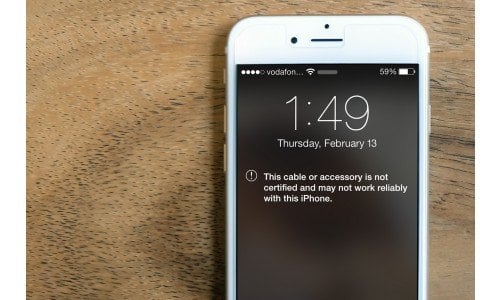While shopping for smartphone accessories or parts you may have come across the acronym “OEM” in some online listings, especially if you’re searching on a website like eBay. So what does OEM stand for? Original Equipment Manufacturer: a company that makes a part or subsystem that is used in another company's end product.
In simpler terms, an OEM phone part or accessory is coming from the same manufacturer as the original part. Have you ever plugged your iPhone in to charge and seen the message, “This cable or accessory is not certified and may not work reliably with this iPhone”? Then you’ve used a non-OEM accessory.
So what should you be looking for? Do you need OEM accessories and parts for your smartphone?
Advantages of non-OEM
Price: This is the biggest advantage, in most cases non-OEM pieces will be significantly cheaper than OEM pieces. The price of an OEM 1m Lightning Cable from Apple, for example, is $19 dollars, while an equivalent non-OEM Lightning Cable from AmazonBasics is only $6.99!
Availability: It’s easy to find non-OEM smartphone parts and accessories. OEM parts on the other hand, can be a little more difficult to find depending on what you’re looking for and how quickly you need it.
Disadvantages of non-OEM
Poor Quality: We mentioned that an advantage of non-OEM accessories is a lower price tag, but when you’re paying a cheap price, you can expect cheap quality. Many times purchasing an OEM accessory will pay for itself as it will last longer and you won’t have to keep replacing it.
Phone Damage: While many non-OEM accessories will do no harm to your phone, there is a chance that they could. Error 53 is a perfect example of what non-OEM parts can do to a phone, luckily Apple has since fixed this problem.
Voided Warranties: Using non-OEM phone parts, like a replacement battery, could actually void any warranty on your phone should damage occur. This means that you could be paying for a whole new phone if your phone is damaged—buying the OEM part is probably going to be cheaper in the long run if you run into any problems.
Lower Resale Value: If you’re planning on selling your phone in the future, non-OEM parts can decrease the value of your phone when it’s reviewed.
Should you always buy OEM?
It depends. If you’re purchasing an accessory for your smartphone, like a charger, you’re probably safe buying non-OEM, just make sure you’re buying from a reputable dealer or brand. Check out online reviews before purchasing any non-OEM accessories for your phone.
On the other hand, when it comes to phone parts, like batteries, the iPhone Touch ID, or any other phone part, it’s usually smart to go with the OEM part. Going OEM may be a little more expensive, but in the end, it’s usually well worth it.
